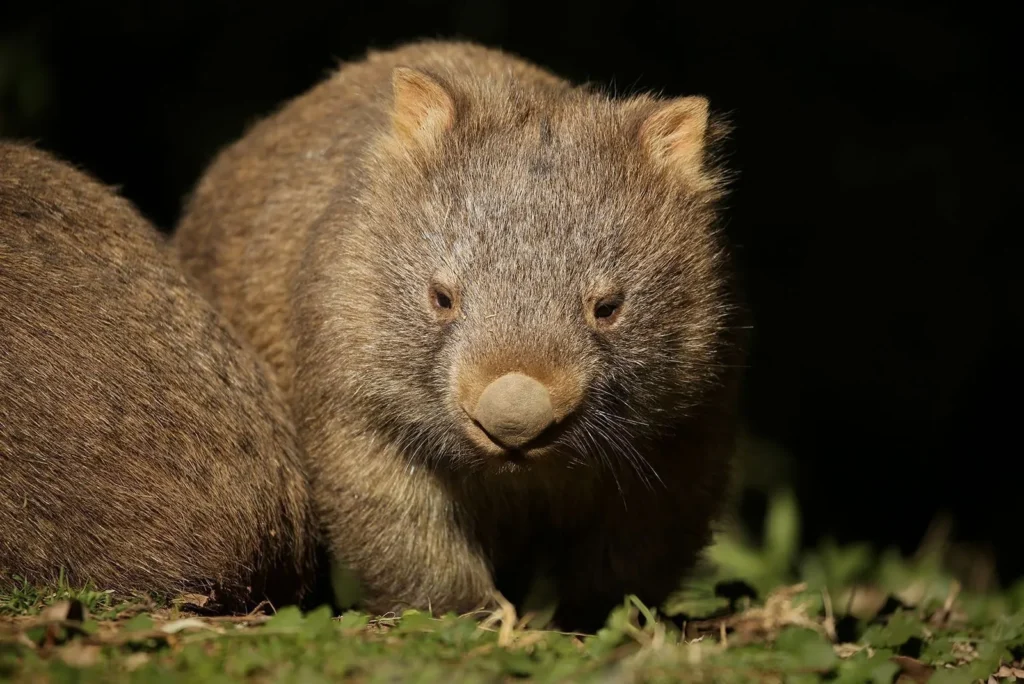A controversy involving American digital influencer Sam Jones, known for her travel and adventure content, has taken over social media and is now under investigation by Australian authorities. With over 92,000 followers on Instagram, Jones was filmed running with a wild wombat cub in her arms while the animal’s desperate mother tried to rescue her baby. The incident, which occurred on a rural road in southeastern Australia, raised serious questions about wildlife protection and respect for the country’s environmental laws.
The video, recorded at night, shows Jones holding the wombat cub and running toward a car, while a man, not visible in the footage, laughs and comments, “I just grabbed a baby wombat.” The cub’s mother is seen running after the influencer in clear distress.

The footage quickly spread across social media, sparking outrage among environmentalists and wildlife advocates. Shortly after, the video was deleted from Jones’s Instagram and TikTok accounts, which were made private.
Experts identified the animal as a common wombat, the only one of the three wombat species not endangered. However, Australian law strictly protects all native animals, including the common wombat, and prohibits any interference with their natural habitat.
Australia’s Minister of Home Affairs, Tony Burke, announced that the immigration department is reviewing Jones’s visa to determine whether she violated the conditions of her stay. According to Burke, if the influencer is found guilty, she could be deported and banned from returning to the country.
“Given the level of scrutiny that will occur if she tries to apply for a visa again, I’ll be surprised if she bothers trying to return to Australia,” Burke said in a statement to CNN.
Australian Prime Minister Anthony Albanese also commented on the incident with irony: “Taking a wombat cub from its mother and causing the animal distress is outrageous. I suggest this influencer try capturing a crocodile cub next time and see how that goes.”
The incident has raised significant concern among ecologists and wildlife veterinarians. Professor Barry Brook, an ecologist at the University of Tasmania, explained that the sudden separation between the mother and her cub can cause severe stress for both animals and put the baby wombat’s life at risk.
“Snatching a cub from its mother’s arms and running with it is something that should never be done. The cub may suffer emotional trauma and even develop health issues,” Brook warned. He also emphasized that wombats have powerful claws used for digging that can cause serious injuries to humans.
Veterinarian Tanya Bishop from the Wildlife Information, Rescue, and Education Service (WIRES) highlighted that the video does not show the cub being returned to its mother, raising concerns about the animal’s welfare. “My concern is whether the wombat suffered any temporary or permanent injury from being carried by its front legs. The pain and stress the animal might have felt are unacceptable,” Bishop stated.
Before making her social media accounts private, Jones attempted to justify her actions, claiming that the cub was held “carefully for a minute” and returned to its mother without injury. “They went back into the bush together, completely unharmed,” the influencer wrote in response to the criticism.
However, this explanation did not convince experts. Bishop stated that simply removing a wild animal from its natural environment is already considered a violation of Australian wildlife protection laws. “All our animals need maximum protection. Human interference, even if brief, can have irreversible impacts on the animal’s health and behavior,” she said.
Australian authorities are analyzing the footage to determine the exact location of the incident and assess the appropriate legal actions. If it is proven that environmental laws were violated, Jones could have her visa canceled and be immediately deported. Additionally, her conduct could negatively impact her image as a digital influencer, especially among followers who advocate for environmental preservation.
Wildlife protection organizations have also warned that Jones’s behavior encourages irresponsible conduct among tourists visiting the country. “What we see here is a clear example of how the pursuit of likes and social media engagement can endanger the lives of defenseless animals,” commented ecologist Jane Peterson from Australian Wildlife Rescue.
The common wombat, although not endangered, faces growing challenges due to habitat destruction, road accidents on busy highways, and diseases like mange. Experts emphasize that the best way to interact with local wildlife is to observe from a distance without interfering with their natural behavior.
“Quietly recording videos and respecting the animals’ space is the best way to appreciate Australian wildlife,” Bishop advises. “And in the case of wombats, the cubs are known to be playful and mischievous, making observation even more delightful.”
Sam Jones’s case now serves as a global warning about the importance of respecting wildlife and Australia’s strict environmental laws. The expectation is that the outcome of this case will discourage similar incidents in the future and promote awareness of the protection of native animals.
The case of Sam Jones has become a global reminder of the importance of respecting environmental laws and wildlife protection. The negative repercussions of the incident reinforce the need for awareness among tourists and digital influencers about their responsibility when interacting with native animals. Australian authorities continue to investigate the incident, and the expectation is that severe penalties will discourage future irresponsible behavior, protecting the country’s unique and vulnerable fauna.

